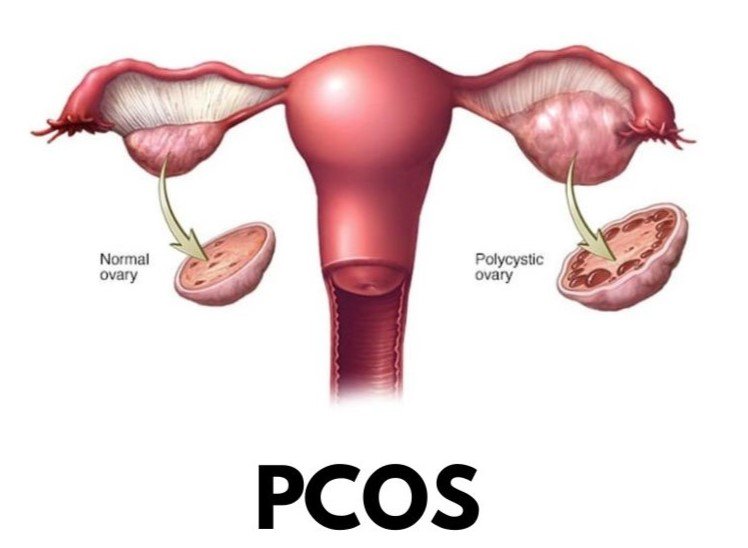About PCOS
PCOS or Polystic Ovarian Syndrome is one of the commonest things we see
today in our OPD. The girls usually come with
irregular periods, weight gain, pimples, excessive hair growth on the body, pigmentation or thinning of
hair. It is a
lifestyle disorder, and needs to be tackled with sensitivity, as you always live with it..
About Its Treatment
It’s short term and the long term implications, a detailed discussion on the diet changes, the
exercises, medications if
required, and a follow up programme. This has helped girls understand and deal with PCOS much better.
Understanding Polycystic Ovarian Disease (PCOD)
Polycystic Ovarian Disease (PCOD) is a common hormonal disorder affecting women of reproductive
age. It is characterized
by an imbalance in reproductive hormones, leading to various symptoms and potential long-term
health complications.
Causes of PCOD
- Genetic Predisposition : PCOD often runs in families, indicating a
hereditary component.
- Hormonal Imbalance : Excess production of male hormones (androgens)
disrupts normal ovarian function.
- Insulin Resistance : Many women with PCOD have insulin resistance, leading
to increased insulin levels that may boost androgen production.
- Lifestyle Factors : Poor diet, lack of physical activity, and stress can
exacerbate symptoms.
Symptoms of PCOD
Symptoms can vary but commonly include:
- Irregular Menstrual Cycles : Infrequent, irregular, or prolonged periods.
- Excessive Hair Growth : Particularly on the face, chest, or back
(hirsutism).
- Acne and Oily Skin : Due to elevated androgen levels.
- Weight Gain : Especially around the abdomen.
- Thinning Hair : Male-pattern baldness or hair thinning.
- Infertility : Difficulty conceiving due to irregular ovulation.
Diagnosis of PCOD
Diagnosis involves:
- Medical History and Physical Examination : Assessing symptoms and family
history.
- Blood Tests : Measuring hormone levels, including androgens and insulin.
- Ultrasound : Detecting enlarged ovaries with multiple small follicles.
Treatment Options
While there is no cure for PCOD, symptoms can be managed through:
- Lifestyle Modifications : Weight loss through a healthy diet and regular
exercise
can improve symptoms and reduce risks.
- Medications :
- Hormonal Birth Control: Regulates menstrual cycles and reduces androgen levels.
- Metformin: Improves insulin resistance.
- Fertility Medications: Stimulate ovulation for those trying to conceive.
- Surgical Intervention : Laparoscopic ovarian drilling may be considered if
other
treatments are ineffective.
When to Consult a Gynecologist
Seek medical advice if you experience:
- Irregular or missed periods.
- Excessive hair growth or acne.
- Difficulty conceiving.
- Unexplained weight gain.
PCOD in India
In India, PCOD affects approximately 2.2% to 26% of women aged 18 to 45 years, with urban women being
more affected due
to lifestyle factors.
We're Here to Help
Our clinic offers comprehensive care for women with PCOD, including:
- Personalized treatment plans.
- Nutritional counseling.
- Fertility support.
- Regular monitoring and follow-up.
Contact us today to schedule a consultation and take the first step towards better health.


